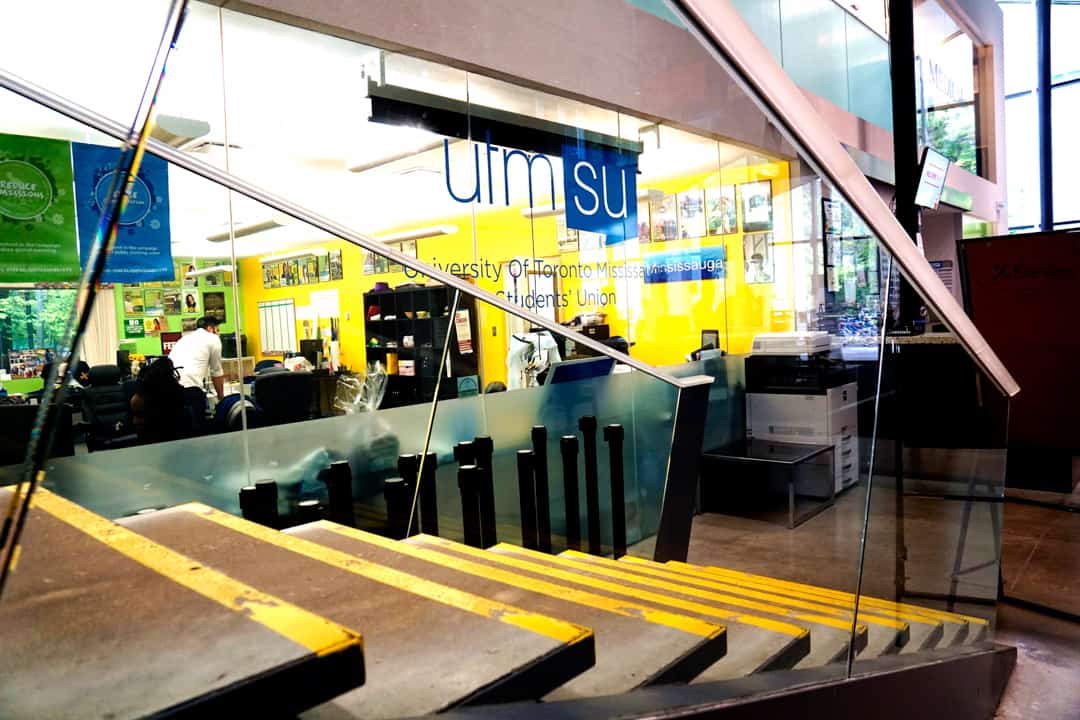The University of Toronto Mississauga Students’ Union (UTMSU) held a board meeting on June 30. At the meeting, Vice-President Campus Life Fatima Yakubi shared the union’s progress in orientation planning.
Board members also received presentations on the union’s plans for the upcoming academic year, as well as reports from the union’s executives’ student advocacy efforts.
In-person orientation
In her position as vice-president campus life, Yakubi is responsible for planning and organizing the union’s annual first-year orientation.
The union has held virtual or hybrid orientations for the past two years. In 2020, the UTMSU cancelled in-person orientation and switched to a virtual model to better align itself with COVID-19 safety protocols. In 2021, the union offered virtual and hybrid orientation packages to incoming first-years.
Yakubi said that she has already hired orientation planning committee members, and she is now looking into securing sponsorships with external organizations and businesses. She stressed that sponsors are pivotal for orientation planning since they contribute to the union’s orientation budget.
Yakubi has also ordered all the necessary materials for orientation, including shirts, string bags, glasses, flags, etc.
Currently, Yakubi and the orientation planning committee are working on releasing tickets and constructing the website for orientation.
Strategies and goals for upcoming campaigns
Alistair Kirk, vice-president external, discussed the union’s goals and strategies for upcoming campaigns.
As part of its Education For All campaign, the union intends to concentrate its efforts to demand that UTM standardize tuition for non-Ontario and Ontario domestic students. Launched in 2020, the campaign centres on ensuring that education is financially accessible for all students at UTM.
Recently, U of T’s Governing Council approved the tuition fee schedule for the 2022–2023 academic year, increasing non-Ontario domestic student fees by three per cent. The approved schedule also increases international undergraduate tuition fees by two per cent.
U of T has increasingly relied on international tuition as a source of revenue, and in the 2017–2018 academic year, international tuition fees became the university’s largest source of revenue.
To further support international students, Kirk plans on working with Migrant Students United — an international student workers’ rights advocacy group under the Migrant Workers’ Alliance for Change — to organize roundtables and workshops to ease the transition for international students.
Additionally, Kirk announced that the union will be campaigning for more on-campus housing for students.
Student advocacy
At the meeting, Suraqa Noor — vice-president university affairs — discussed the union’s plan to work with the Scarborough Campus Students’ Union (SCSU) to lobby UTM and UTSC administrations for an extension of the credit/no credit (CR/NCR) policy. Currently, students across U of T’s three campuses can only add or remove CR/NCR designation to their courses until the last day of classes. The UTMSU and SCSU believe that the deadline should fall after students have received their final grades for the semester.
Noor also highlighted an increase in academic integrity cases involving the use of unauthorized aids. Noor worked with the UTMSU academic advocacy coordinator to help students through the process of appealing against academic integrity charges.
Moreover, she discussed the increase in frequency of such cases with UTM administration, requesting that the administration review the Code of Behaviours on Academic Matters, which was approved in 2019 by the Governing Council. The document outlines the actions that qualify as academic offences, as well as the processes for addressing a suspected case of academic misconduct. Owing to the shift to virtual examinations and assignments that began in 2020, Noor believes that the conditions for judging academic integrity should be reassessed.
A similar increase was noted at the May meetings of the UTM Academic Affairs Committee and the UTM Campus Affairs Committee. Cases of academic misconduct reported at UTM in the 2020–2021 academic year were more than twice the number of cases reported before the shift to virtual learning in 2020.


